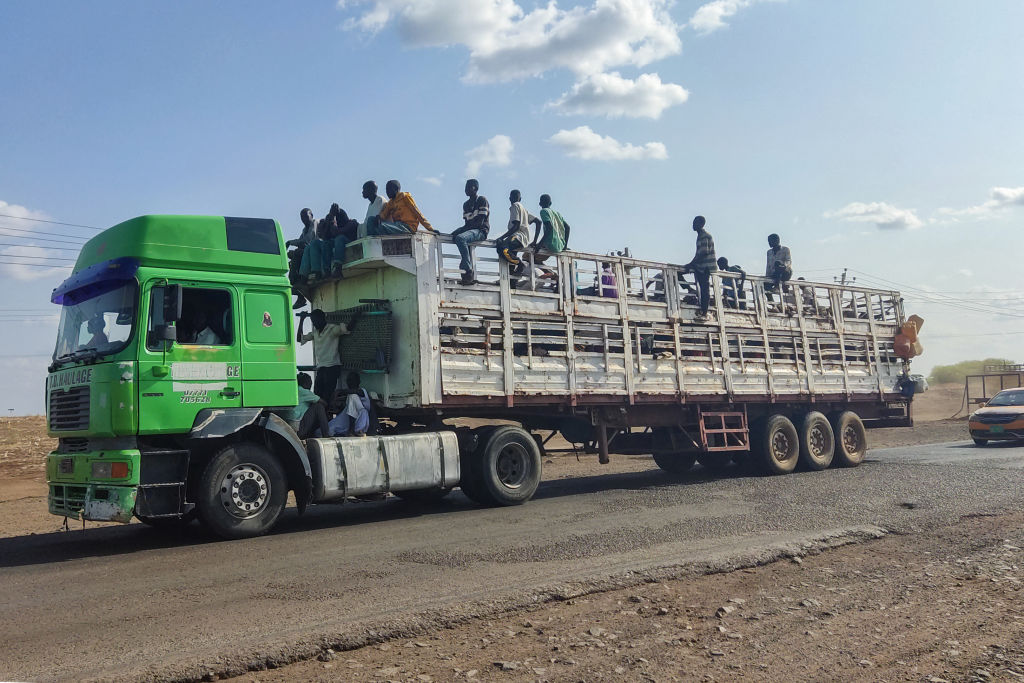ADF STAFF
Since it began in April 2023, the war between Sudan’s top generals has been marked by the relentless and largely unresisted advance of Rapid Support Forces (RSF) fighters, bringing ever-larger areas of the country under the paramilitary force’s control.
The Sudanese Armed Forces (SAF) and their allied militias continue to hold territory in Sudan’s north and east, but much of the country’s most valuable real estate — from gold mines in the west to farmland in the east and much of the capital region — now is in the hands of the RSF.
RSF victories in places such as al-Fula, the capital of West Kordofan State, have given the militia access to SAF bases along with the weapons and other materiel contained within them. West Kordofan also is home to Sudan’s largest oilfield.
Waves of brutality have come after RSF conquests. Residents of al-Gezira State, which fell to the RSF in December 2023, report that the RSF killed hundreds of civilians, looted homes, stole vehicles, attacked farmers and gang-raped women.
Attacks against civilians in the Darfur region have targeted non-Arab populations, many of whom were the targets of genocidal attacks by the RSF’s predecessor, the Janjaweed, 20 years ago.
“Everywhere that the RSF takes over, they do not govern,” Alan Boswell of the International Crisis Group told Al Jazeera.
The RSF’s leader, Gen. Mohamed Hamdan “Hemedti” Dagalo, blames rogue elements within his forces for violence against civilians in RSF-held territory. However, analyst Amgad Fareid el-Tayeb told Al Jazeera that it appears that Hemedti’s central command has lost control of the RSF’s various fighting groups.
In March, Hemedti took the unusual step of creating a civilian authority to rule over RSF territory in al-Gezira. Analysts say that may foreshadow Hemedti’s larger plans for a Libya-like division of Sudan, particularly if he succeeds in conquering al-Fasher in North Darfur, which remains in SAF hands.
“Al-Fasher is the last of the state capitals in Darfur that is not under Rapid Support Forces hands,” Sudanese analyst Elbashir Idris told Al Jazeera. “Once it falls or if it falls into Rapid Support Forces hands, essentially, the RSF would try to claim an independent government there similar to how [Field Marshal Khalifa] Haftar has done in Libya.”
With the help of Iranian drones, the SAF has managed to take back parts of Omdurman, particularly the neighborhood containing the national broadcast studios, and to hold onto el-Fasher, the besieged capital of North Darfur. In recent weeks, the SAF and RSF have battled back and forth for control of key areas in eastern Sennar State, which is a crucial part of Sudan’s agricultural land.
SAF forces have conducted mass arrests of young men in Blue Nile, Gedaref and parts of Sennar State that they control under the guise of rooting out sleeper cells loyal to the RSF. Many of the men are from Darfur, the home of the RSF and its primary recruitment area. Some of the detained men have worked for medical facilities or grassroots anti-war groups known as resistance committees.
“Pro-military advocates, desperate to explain the rapid RSF gains and the military’s losses, have resorted to scapegoating alleged pro-RSF ‘sleeper cells’ operating within Army-controlled areas,” analysts with the Sudan War Monitor wrote recently.
In November 2023, SAF leader Gen. Abdel Fattah al-Burhan, Sudan’s de facto president, accused the RSF of grabbing territory to gain advantage during cease-fire negotiations. As the RSF has continued to gain land from the SAF, al-Burhan has refused to move forward with peace talks.
Analyst Hamid Khalafallah says al-Burhan and the SAF might be reaching their limit in countering the RSF advances. Reclaiming the broadcast facilities in Omdurman is likely to be the SAF’s largest victory going forward, according to Khalafallah.
“I’m not sure they have the capabilities to do much more,” he told Al Jazeera. “The radio and television building is huge for them, but it’s not a city.”

